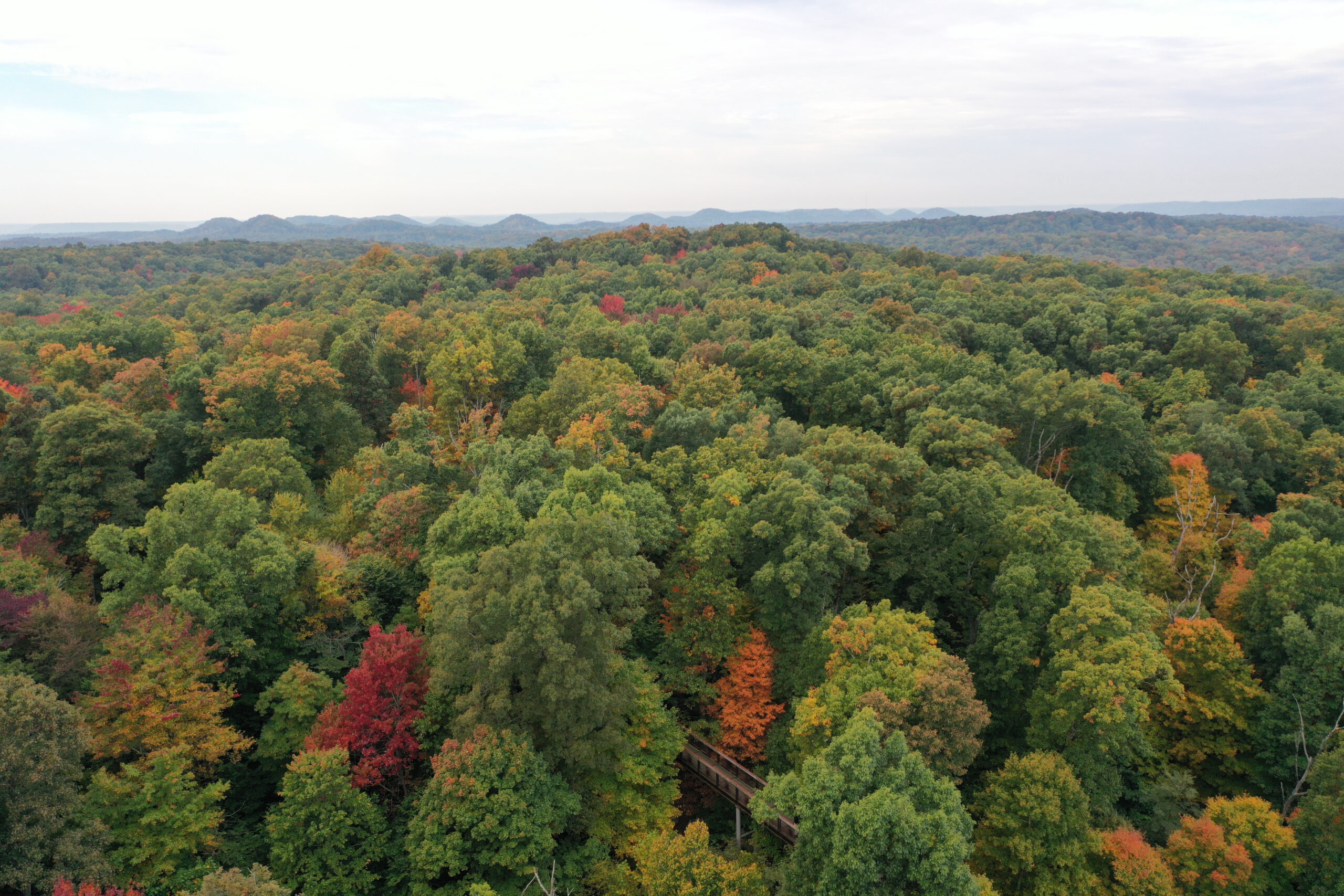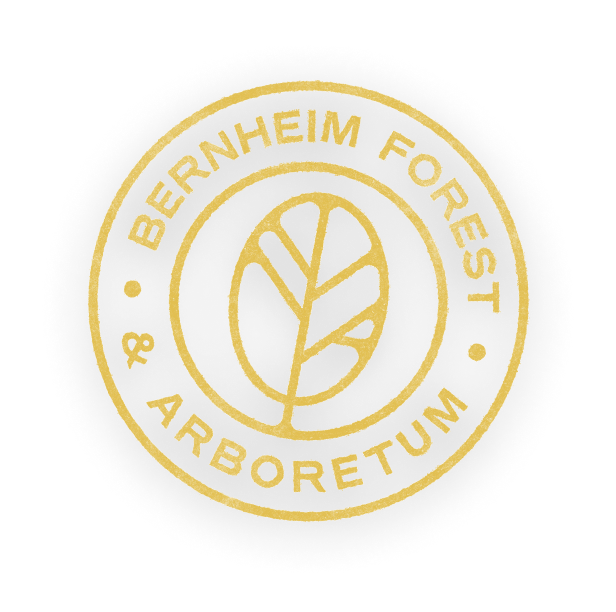By Bernheim
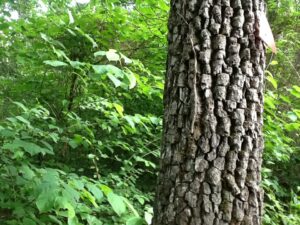
When most people think of the sounds of this season they think of the crunch of autumn leaves. For me, it’s the sound made by the plunk or splat of falling persimmons. With its distinctive bark, reminiscent of alligator hide, the persimmon tree (Diospyros virginiana) was the first tree my father taught me to recognize. I now have a searching image of them and I can’t walk in the woods without all the nearby persimmon trees silently announcing their presence.
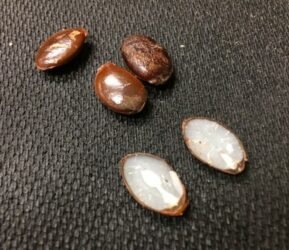
Dad also taught me folklore surrounding forecasting the upcoming winter’s weather by examining the inside of persimmon seeds – a form of “folkcasting” that may be more fun than factual. These seeds are about the size of a watermelon seed and if you carefully split one so that it opens like a book, you will find the ghost-like outline of the embryo which becomes the root of the tree. According to various folklore, if this embryo is shaped like a knife, the winter will be cutting cold. If it’s like a fork, the winter will be mild. If the embryo is shaped like a spoon, you best grab your snow shovel! Although I’d never bet on the accuracy of such predictions, I still enjoy this autumn ritual, and the metaphoric allure of looking into the heart of a persimmon seed.
Persimmon trees usually grow straight and tall, between 100 and 130 feet and less than a foot wide. In a cross section, the dark interior heartwood hints that the tree is a member of the ebony family. The wood of the persimmon has been used for things that resist splitting on sudden impact like golf clubs.
Although persimmons may be an acquired taste, the genus name, Diospyros can be loosely translated as food of the gods, or divine fruit. The taste of a ripened persimmon is a memorable experience. It’s a gooey stew which conjures the sweet essence of autumn – all held together in a thin squishy membrane. Visualize a miniature water balloon filled with a spicy amber applesauce and you’ll have a fair depiction of a ripe persimmon.
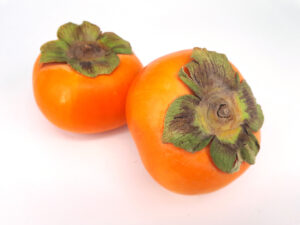
When a ripe persimmon falls, it tends to fall with a splat. An unripe persimmon falls from the tree with a discernable plunk. If you bite into this “plunker,” it is an even more memorable experience. Unripe persimmons are not sour, but they are extremely astringent. Biting into one leaves your mouth feeling like it’s full of fuzzy wrinkles. You never forget its pucker power!
An account written in 1758 in the History of Louisiana stated that the Native Peoples made a breadstuff that “has this remarkable property that it will stop the most violent looseness of dysentery”. Thus, the persimmon should not be eaten by the chronically constipated.
Raccoons also fatten up for the winter by feasting on persimmons. In return for these calorie laden gifts, raccoons plant lots of trees by eating persimmons and depositing seed laden scat (now enriched with organic fertilizer) some distance from the parent tree. The fruit is also eaten by birds, flying squirrels, skunks, opossums, and white-tailed deer.
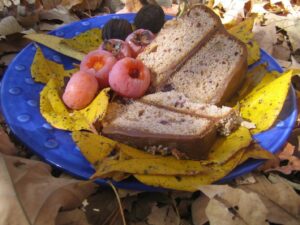
Persimmons will fatten up humans as well. Many people in our area gather them and remove their seeds (I use a food mill for this process) to make cookies, persimmons, candies and pies. I find that substituting persimmons for recipes that call for applesauce can lead to good results. I usually add a little extra moisture in the way of yogurt, water, milk or oil to account for the persimmon pulp’s thicker consistence.
Many people believe that persimmons will not ripen until after a frost, but that isn’t true in all cases. Some trees, like several here at Bernheim, are ripe weeks before the first frost. To judge the ripeness of a persimmon, I remember what my father taught me years ago, “If it’s a ‘plunker,’ it will make you pucker, but those that splatter will make you fatter.” So as you begin your excursions into autumn, be sure to enjoy the crunch of the leaves, but don’t forget to listen to sounds of the “divine fruit” falling from the heavens, or from the nearest persimmon tree.
